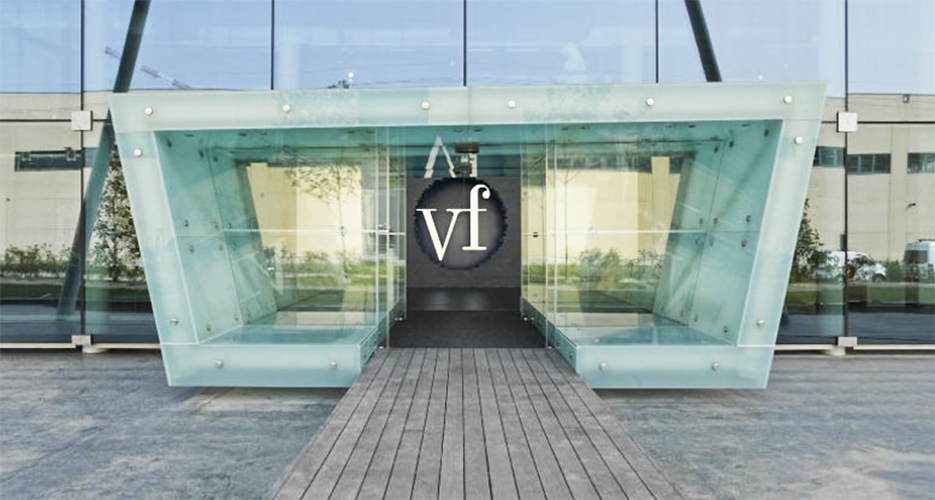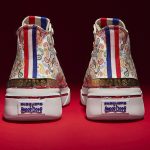Moody’s Investors Service assigned an A3 rating to VF Corp’s proposed senior unsecured note offering. All other ratings for the company were affirmed, including the A3 senior unsecured rating and Prime-2 commercial paper rating. The rating outlook was changed to negative from stable.
Proceeds from the offering will be used to repay borrowings under its revolving credit facility, with any remaining net proceeds to be used for general corporate purposes.
Moody’s said the outlook change to negative reflects the material increase in term debt and leverage at a time when there is significant uncertainty around the duration and severity of the coronavirus spread on VF’s operating performance and credit metrics, and it may take at least a couple of years to improve leverage closer to current levels. However, other metrics, such as funds from operations to net debt will likely remain solid. The affirmation reflects VF’s strong position as one of the world’s largest apparel companies, its diverse brand portfolio, and track record of driving sustainable organic revenue growth and maintaining strong credit metrics over the longer term. VF’s liquidity is excellent, supported by around $2.4 billion of balance sheet cash as of April 7, 2020, as well as incremental proceeds from the proposed debt offering.
Assignments
- Senior Unsecured Regular Bond/Debenture, Assigned A3
Affirmations
- Commercial Paper, Affirmed P-2
- Senior Unsecured Shelf, Affirmed (P)A3
- Preferred Shelf, Affirmed (P)Baa2
- Subordinate Shelf, Affirmed (P)Baa1
- Senior Unsecured Medium-Term Note Program, Affirmed (P)A3
- Senior Unsecured Regular Bond/Debenture, Affirmed A3
Outlook Actions
- Outlook, Changed To Negative From Stable
Rating Rationale
Moody’s wrote, “The rapid and widening spread of the coronavirus outbreak, deteriorating global economic outlook, falling oil prices, and asset price declines are creating a severe and extensive credit shock across many sectors, regions and markets. The combined credit effects of these developments are unprecedented. The apparel sector has been one of the sectors most significantly affected by the shock given its sensitivity to consumer demand and sentiment. More specifically, the weaknesses in VF’s credit profile, including its exposure to widespread store closures and discretionary consumer spending have left it vulnerable to shifts in market sentiment in these unprecedented operating conditions and VF remains vulnerable to the outbreak continuing to spread. We regard the coronavirus outbreak as a social risk under our ESG framework, given the substantial implications for public health and safety. Today’s action reflects the impact on VF of the breadth and severity of the shock, and the broad deterioration in credit quality it has triggered.
“VF’s credit profile is supported by its significant scale as one of the largest apparel companies in the world, with broad diversification in the industry by product and distribution channel. It also owns several well-known brands with strong market positions in their segments such as Vans, The North Face, Timberland and Dickies, with a successful long term track record of driving sustainable organic revenue growth across its portfolio. The rating is supported by governance considerations, specifically a conservative leverage policy demonstrated by its track record of cutting share repurchases and reducing acquisition debt and leverage. VF is constrained by its willingness to pursue growth through acquisition which, in some cases, resulted in the company taking on temporarily high levels of short term debt — as it did with the acquisition of Williamson-Dickie in October 2017.”
Moody’s said the ratings could be downgraded if VF’s financial policies were to become more aggressive, such as resuming share repurchases while leverage remains elevated. Specific metrics include lease-adjusted debt/EBITDA sustained above 2.0 times, interest coverage below 6.5 times and RCF/Net Debt below 30 percent.
With a negative outlook, an upgrade is unlikely over the near term. Ratings could be upgraded if VF demonstrates sustained organic revenue growth across its portfolio of brands while maintaining conservative financial policies and lower debt levels. Specific metrics include lease-adjusted debt/EBITDA sustained below 1.5 times and retained cash flow/net debt sustained in the low 40 percent range.
VF’s core brands are Vans, The North Face, Timberland and Dickies.
Photo courtesy VF Corp.
















